#performance review
Text
One of Rincewind's tutors had said of him that "to call his understanding of magical theory abysmal is to leave no suitable word to describe his grasp of its practice." This had always puzzled him. He objected to the fact that you had to be good at magic to be a wizard. He knew he was a wizard, deep in his head. Being good at magic didn't have anything to do with it. That was just an extra, it didn't actually define someone.
Terry Pratchett, Sourcery
#rincewind#sourcery#discworld#terry pratchett#character description#wizards#magic#theory and practice#identity#self identification#ability#understanding#competency#performance review#definition#just an extra#abysmal
231 notes
·
View notes
Text
Dracula was upset about his mediocre performance review (he was intentionally antagonizing his coworker).
384 notes
·
View notes
Text
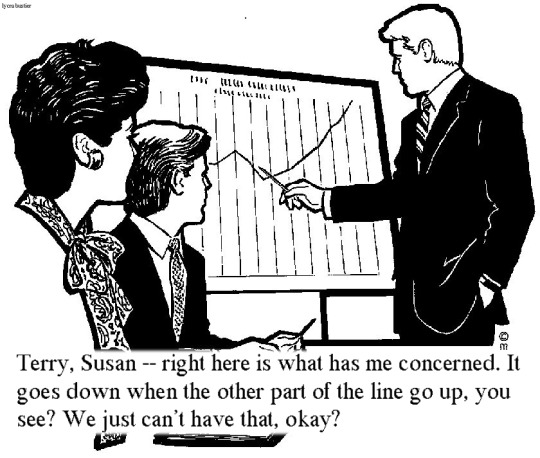
I think Terry and Susan might need to update their resumes asap
#business#businesscore#nostalgia#office space#retro#retro tech#business memes#vaporwave#1980s#80s aesthetic#memes#graphs#resumes#team meeting#performance review#finance
42 notes
·
View notes
Text
Quarterly performance review lol. Sound on.
90 notes
·
View notes
Text
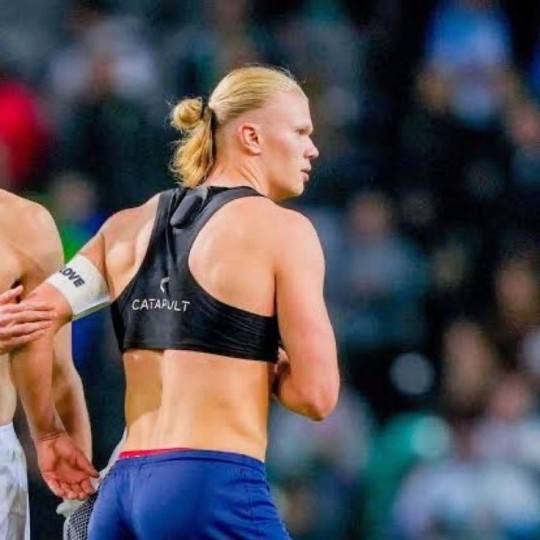

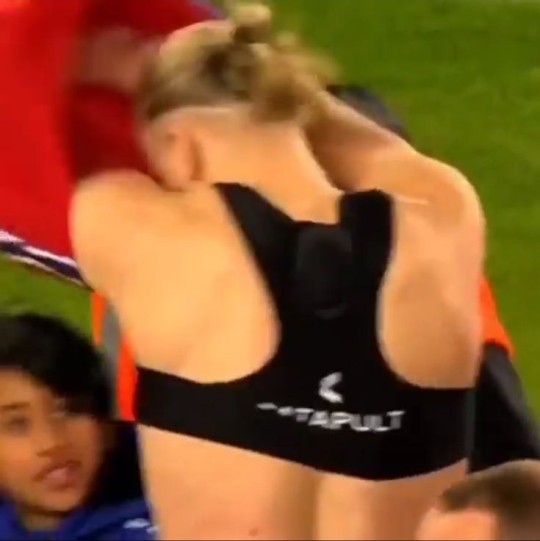
Catapult Football GPS Vest adverts assure us that one of its major benefits is that it 'helps you perform' ............... now I wouldn't have thought Erling needs any help in that department ......... but if he really wants to test his level of performance with me ......... (with and without the vest)....... I would be more than happy to do a performance comparison review and analysis ............ all purely in the interests of science of course .......... 😉🤭
#erling haaland#catapult gps vest#in the interests of science#performance review#best place for the GPS Vest is on my bedroom floor!#erling pics from pinterest
8 notes
·
View notes
Text

You can find me on Mastadon, Instagram, Webtoon, and now here on tumblr! Follow me on all the things or none of the things!
#performance review#year end review#year in review#delusion#adequacy#delusions of adequacy#comic#comics#webcomic#webcomics#comic strip#comic strips#office humor#workplace humor#finding flamingos#laziness#findingflamingos
53 notes
·
View notes
Photo
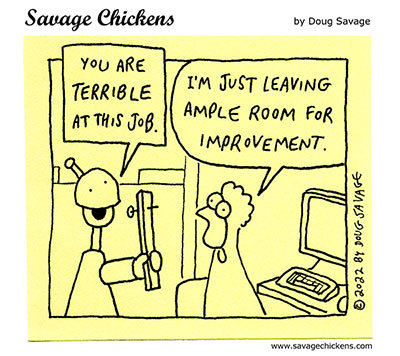
Focus on Growth.
And more work!
68 notes
·
View notes
Text
"I have called this meeting to discuss several concerns I have with your commitment to the clowder."

[Image description: A beautiful grey tabby cat with yellow eyes sits on a chair behind a table. He looks directly at the camera with a stern and slightly concerned expression.]
9 notes
·
View notes
Text
I had a performance review today. It wasn’t even that bad; just some areas for improvement. But ever since I have been spiraling HARD down the self-recrimination vortex.
#when you want to say ‘sometimes life sucks’ but you can’t because it objectively doesn’t and all the badness is just living in your head#performance review#work#insecurity#I want man’s approval#and by man I mean the two other gals in charge of me#struggling to fix my mind on things above#I need to anchor my self worth in something other than my personal performance#I think I’m getting dehydrated
8 notes
·
View notes
Text
Video Review: Les Misérables, 3rd National Tour, 2000, Act II (long)
Here’s the second half of my review of this complete Les Mis performance, which I wrote some time ago but I'm sharing again in honor of Barricade Day.
Main Cast
Jean Valjean: Ivan Rutherford
Javert: Stephen Bishop
Fantine: Joan Almedilla
Thénardier: J.P. Dougherty
Mme. Thénardier: Aymee Garcia
Marius: Tim Howar
Enjolras: Kevin Earley
Éponine: Sutton Foster
Cosette: Regan Thiel
Grantaire/Bamatabois: Trent Blanton
Young Cosette: Stephanie Mieko Cohen
Gavroche: Christopher Carlson
“Upon These Stones,” “On My Own,” “The Barricade,” “Javert at the Barricade,” “Little People”
Sometimes the smallest details can change our impressions of a character. For example, Sutton’s Éponine purposefully gets Marius’s attention by touching his back as she walks past him. Éponines who do this create a different sense of their desires and motives than Éponines who don’t. There’s also a big difference between Éponines who sing “Little you know! Little you care!” alone after Marius leaves and those who, like Sutton here, sing it as an outburst directly to Marius’s face, angrily snatching the letter from his hand. Every Éponine I ever saw in both the 3rd National Tour and the 2006 Broadway revival did the latter. Personally, I think it’s a bit petulant compared to singing the line alone. But if we assume she’s come to the barricade hoping Marius will finally love her for joining the battle – which her purposefully letting him know she’s there might imply – and yet he still doesn’t get it, I suppose an outburst to his face is understandable.
I like that neither Tim’s Marius nor Ivan’s Valjean are too harsh with Éponine. Tim strikes a good balance between stern and caring, while Ivan is nicely gentle instead of automatically treating her like a spy for Javert. His letter-reading is good too, though I wish the camera showed his face instead of focusing on Éponine as she eavesdrops.
I’ve written about Sutton’s “On My Own” before, but I’ll restate my feelings here. I honestly don’t think anyone has ever sung the song more beautifully; her voice is like flame and crystal combined in sound form. And her journey from happy dreams to raw anger and despair is vivid and deeply felt without a trace of sentimentality. I can’t fault it, even though I personally don’t care much for angry renditions of this song.
The barricade boys’ pledge to hold the barricade and defiance of the officer’s warning are gripping as they should be, especially the magnificent high A sung by Ben Davis’s Feuilly on “We’ll be there!” It’s no wonder that he went on to sing operatic roles as well as musical theatre.
Christopher’s Gavroche comes into his own in “Little People.” His Act I might have been slightly bland, but here I can fully believe in his spunk and cheek.
Kevin’s commanding presence as Enjolras and the rich-voiced stolidness of Stephen’s Javert are still outstanding.
The tone of the “Little People” scene definitely changes when the now usually-cut lines before and after “Shoot me now or shoot me later…” are included. Instead of just a few boys clamoring ineffectually in the background to shoot Javert, the barricade erupts into chaos after Javert is outed as a spy, with Courfeyrac, Feuilly and others forming an impromptu firing squad to shoot him in blatant defiance of Enjolras’s orders, and with Enjolras and Combeferre’s cooler heads just barely prevailing in the end. I still wonder why the scene was written this way, when it has no basis in the novel. I can only assume the musical’s authors thought it would be more moving to see the barricade boys come close to falling into bloodlust and anarchy under the stress of adversity, only to ultimately choose idealism, courage and unity, than if they were always disciplined and unified. Maybe on the stage, this is true.
At any rate, I like the detail of Gavroche grabbing a gun to join the impromptu firing squad and a woman trying to wrest the gun from him. It’s a welcome, subtle touch of comic relief and fully in character for the boy.
“A Little Fall of Rain,” Night of Anguish,” “First Attack, “Drink With Me”
Kudos to Sutton for remembering to act wounded even before she collapses, climbing very slowly down the barricade, having to stop and rest midway down, and then clutching Marius for support. Not all other Éponines do that. During the song she never cries out or writhes in pain, but I think it works. The motionless tension of her body makes me assume that her Éponine is hiding her pain from Marius, which fits with the lyrics, and of course lets us focus on the moment’s tender emotions. In the last verse, I like the way she gently fades away, loosening her grip on Marius’s arm and lying completely still except to move her lips as she sings, but then, at the very end, finding the strength to pull herself up and kiss him. It evokes the way Hugo’s Éponine lies so motionless that Marius thinks she’s already dead, only to open her eyes and utter her love confession.
Tim’s concern and tenderness compliment Sutton’s performance perfectly, and though his grief is quiet and understated, it’s still poignant.
The moment when Enjolras comforts Marius is understated yet touching too. Kevin’s Enjolras is clearly pained by Éponine’s death but seems at a loss for what to say or do for Marius. In the end, a silent shared arm-clasp is all that’s needed.
When Valjean arrives, the Amis take a fairly calm, wary yet respectful approach to interrogating him, lowering their guns as soon as they realize he’s not a real National Guardsman. I’m tempted to like this better than versions like the 2012 movie where they’re aggressive and almost ready to shoot him on sight, although the latter is valid too.
During the battle, I see another detail I remember reading about in reviews. When Kevin’s Enjolras kneels down to assist the student who’s been wounded by the sniper, only to be narrowly missed by another bullet from said sniper, he falls backward and sits paralyzed in shock, looking like “a frightened little blond boy” (as I remember one fan writing) until Valjean helps him up. I know that some fans can be touchy about Enjolras showing any weakness, but I personally don’t mind this detail. It’s only a brief moment, and like the above-mentioned moment with Marius, it’s a humanizing image that makes Enjolras believable not only as a staunch leader, but as a young man facing the threat of death for the first time. (Yes, I know Hugo’s Enjolras also fought in 1830, but the musical never mentions this.)
Besides, I love the way Grantaire snaps out of his motionless stupor to reach out to Enjolras when that brush with death occurs.
Stephen and Ivan are both excellent in the releasing scene. Stephen moves believably from rage and disgust at having Valjean as his executioner, to confusion when he’s freed, to smug disdain when he thinks he’s figured out Valjean’s motive, to a slow, speechless, dumbfounded exit, while by contrast Ivan’s Valjean remains staunchly calm, not losing his temper at Javert’s insults, but firmly committed to doing the right thing.
Moving on to “Drink With Me,” Trent’s Grantaire puts an interesting spin on his solo by addressing specific lines to specific individuals, to whom (if we know the Ami’s individual personalities in the novel) each line has the most meaning. “Can it be you fear to die?” he directs to Joly, the hypochondriac. “Will the world remember you when you fall?” is aimed at Feuilly, the orphan who has no family to remember him. And of course “Will your death be one more lie?” he addresses to Enjolras.
Then we have a beautiful Enjolras/Grantaire reconciliation, which unfortunately the cameraperson only shows us in part. Enjolras first stares at Grantaire, then angrily grabs his shoulder, with poor Grantaire shielding his face as if he expects to be hit. But then they gaze at each other, for a long time, and then finally, warmly clasp hands. It’s too bad that the cameraperson chooses to pan around the stage during their long shared gaze instead of showing us their expressions leading up to the hand-clasp. But I suppose the E/R relationship wasn’t quite at the fandom’s forefront in 2000 the way it is now (it was already a popular ship, if I remember correctly from my middle and high school days, but slightly less so than Éponine/Marius or Enjolras/female OCs).
Tim’s soft, sad delivery of Marius’s verse at the end is very touching and I like the consoling pat on the knee Trent’s Grantaire gives him before walking away
The ensemble work is excellent, as always.
“Bring Him Home,” “Dawn of Anguish,” “Second Attack (Death of Gavroche),” “The Final Battle,” “Dog Eats Dog”
Ivan’s “Bring Him Home” is beautiful.
I hope that someday, somehow I see a production of Les Mis that includes the “Drink With Me” reprise. It add so much more emotional weight than there is when the women simply hurry off and the battle commences. By the way, here’s a question for people who were fans before the cuts were made. Did the “Drink With Me” reprise always end with Enjolras and Marius clasping arms at the top of the barricade? Was this a universal part of Nunn and Caird’s staging? It’s a beautiful reinforcement of Enjolras and Marius’s friendship and Marius’s now-unwavering loyalty to his friends, but still, if I were to direct a new production, I’d be tempted to have Grantaire share that moment with Enjolras instead. I think it might be a better moment for their reconciliation than “Drink With Me.”
Christopher’s Gavroche is still less vivid than others I’ve seen, and the moment of his death looks slightly unconvincing (he breaks the fall with his hands a bit too obviously), but he still gives a solid performance overall.
To the very end, Kevin’s Enjolras is fully believable as the staunch, dignified, heroic leader, yet still a human being. His slow descent from the barricade after Gavroche’s death – the only movement onstage while everyone else is frozen in shock and grief – and seeming obliviousness to the offstage officer’s voice as he stands and ponders what’s happened and what’s to come is both poignant and true to the spirit of Hugo’s Enjolras. We can sense his pain, yet he faces it with stoic dignity and undying courage. His “Let others rise…” is powerful, even though he neither shouts nor goes for the high note on “…is free!”
And then there’s the heartbreaking moment after Marius falls, when Enjolras hurries to him, throws poor Grantaire aside, and tries vainly and irrationally to revive his seemingly dead friend before rushing off to his own death. Some might argue that this is out of character for Hugo’s Enjolras, and it’s definitely not realistic for the middle of a battle when, as Hugo repeatedly writes, you can’t stop for anything. But it’s moving, although I would have liked a more meaningful last interaction with Grantaire than just a quick glance.
The fall of the barricade and the tableau of Enjolras’s body on the barricade are epic and heartbreaking, as always. No other staging can surpass the original.
J.P.’s Thénardier definitely feels more alive in his sinister scenes than in the comedy scenes. I’m not quite sure why I always remembered him as being mainly a comic Thénardier. It was probably his looks, I’m sorry to say – it was too easy to mentally pigeonhole him as “the funny fat guy.” At any rate, his “Dog Eats Dog” is deliciously dark and mocking.
“The Sewers,” “Javert’s Suicide,” “Turning,” “Empty Chairs at Empty Tables,” “Every Day”
I remember one thing J.P.’s Thénardier used to do that annoyed fans back in the day was to silently break the fourth wall by visibly waiting for the audience to applaud after “Dog Eats Dog,” then shrug his shoulders when they didn’t. He did this the first time I saw the show. But thankfully he doesn’t do it here.
Kudos to Ivan for actually carrying Marius throughout the sewer sequence. We get none of the standard “Marius tries his best to look unconscious and disguise the fact that he’s actually walking while Valjean supports him” business seen in so many other performances.
Stephen gives a powerful rendition of “Javert’s Suicide,” both in his sumptuous voice and in his vivid rage and torment.
“Turning” is poignant, as it should be. The fact that the pregnant woman is played by a black actress instantly makes me think of the fandom’s widely-accepted headcanon of Musichetta as a woman of color – as far a my imagination is concerned, it’s her, and the unborn baby’s father was either Joly or Bossuet. I’ll also imagine that she’ll eventually meet Marius and Cosette and they’ll help to support her and provide for the baby.
Tim’s “Empty Chairs at Empty Tables” is beautiful and moving. His warm, darkly-shaded voice is wonderfully suited to the music, and while his grief is subtly conveyed, it can still be deeply felt. This is a trend throughout this particular performance, I think: the story is told with as little sentimentality as the material allows, and the male characters in particular are all played with a stoicism not seen in other portrayals, but their emotions can still be felt no matter how quiet they are.
The uncut “Every Day” is gently and sweetly performed by Regan, Tim, and Ivan when he joins them. The ending is adorable, with Marius and Cosette holding hands and almost face-to-face when they notice Valjean watching them, and being the modest 19th century pair they are, quickly draw apart and try to look “seemly,” only for Valjean to lovingly rejoin their hands. Unfortunately, Regan goes a bit off-pitch on her final note, but that note tends to be a hit-or-miss one for most Cosettes.
“Valjean’s Confession,” “Wedding Chorale/Beggars at the Feast”
Ivan and Tim are both spot-on in “Valjean’s Confession.” Ivan is more stoic than Hugo’s Valjean is in this scene, but this is true of his Valjean throughout, and as always, in his subtle way he still conveys his struggle and pain. I’ve heard other Valjeans be more forceful and demanding on “Promise me, M’sieur, Cosette will never know!” but the way Ivan’s voice becomes so soft and pleading instead is probably even more disarming to Marius.
Moving on to the wedding, it’s so nice to hear Marius’s exchange with the Thénardiers uncut. Éponine is remembered, her parents earn more hate with their cold, selfish response, and they build up their revelation about Valjean with just the right preamble to entice Marius – even if they do have to chase him around the ballroom to do it. I notice that Tim’s Marius tries to walk away before Thénardier brings up the “murder” (presumably he thinks they’re just going to reveal that Valjean is a convict, which he already knows), but a soon as Thénardier makes the murder claim, he becomes concerned and listens. This is different from Niklas Andersson’s London Marius in the same year (so far the only other video I’ve watched of the uncut scene), who stalked away in disgust after Thénardier made the murder claim, refusing to believe that Valjean could be a killer as well as a thief.
Regan’s Cosette looks appropriately startled and confused after Thénardier drags her into a wild spinning dance and then Marius punches him. I wonder if she recognized him in that moment?
J.P. and Aymee do a fine job with the Thénardiers’ final flourish. Just enough slapstick to get laughs (e.g. Aymee’s pantalette-flashing fall when she tries to curtsy, the business with the dropped silver later), but not enough to turn them into caricatures. “Beggars at the Feast” is just the right exuberant uplift (however cynical the lyrics) that we need before the finale.
Epilogue
As is characteristic of this cast, Valjean’s death and heavenward ascent are depicted calmly and gently, with tears and sentimentality kept to a minimum, but with genuine love and warmth in abundance. Ivan’s Valjean infuses his last moments with quiet dignity and tenderness, as well as beautiful soft singing, while Joan’s Fantine is appropriately angelic, and Regan’s Cosette, Tim’s Marius and Sutton’s Éponine beautifully round out the scene. The moment when Fantine kneels before Valjean and he reaches out to take her hand, only for Cosette to take her mother’s place for their last reunion, is very touching. So is the way Regan’s Cosette lingers over her father’s lifeless body, staring into his face in utter disbelief until finally Marius gently draws her away. The little hug she gives Marius near the end of the final chorus is also as sweet as can be (as I’ve mentioned before, they were a couple in real life at the time).
The final chorus is magnificent, as it always should be. An excellent end to an excellent performance.
#les mis#les miserables#performance review#bootleg#video#3rd national tour#us tour#act ii#los angeles#2000#ivan rutherford#stephen bishop#sutton foster#tim howar#kevin earley#regan thiel#j.p. dougherty#aymee garcia#trent blanton#complete performance
7 notes
·
View notes
Note
⭐️Blog performance review ⭐️
Content: outstanding
Fic writing: outstanding
You as a person: outstanding
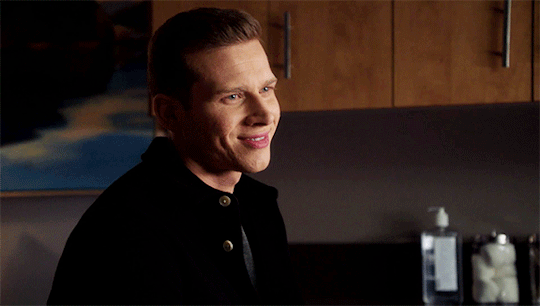
oh stoooppp
7 notes
·
View notes
Text
Had my performance review today. All is very well. Boss said, "Hey, I want to help you with your plans in the next year or three years, even if it's not here." and he did so without looking entirely terrified I might leave sometime soon (we are VERY busy). I've no plans to go anywhere. The work's good, my boss is excellent, and I like what I'm working on. I want to do some sort of work-mentoring for the incoming younglings, and that's kind of my whole plan.
But also, in the written part of the review, my boss got my pronouns correct every single time. And, yeah, our job is to catch shit like that, but it's nice to see.
18 notes
·
View notes
Text

#meme#mattsmemes#memes that make you go hmmm#personally attacked#calculated mediocrity#sounds perfect#workplace#performance review
9 notes
·
View notes
Text
Charles has Jane Lynch (his stunt double from his show) break up with Jan for him.
#ashleybenlove posts#Only Murders in the Building#Only Murders in the Building spoilers#omitb spoilers#season 2#Performance Review
20 notes
·
View notes
Text

3 notes
·
View notes
Video
youtube
Track of the day // Joyeria - Performance Review
4 notes
·
View notes